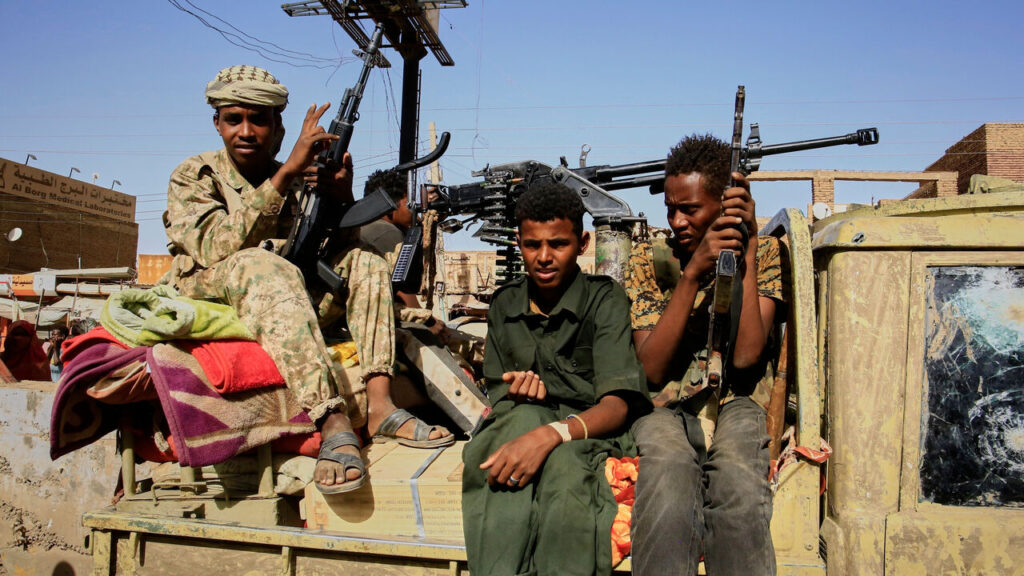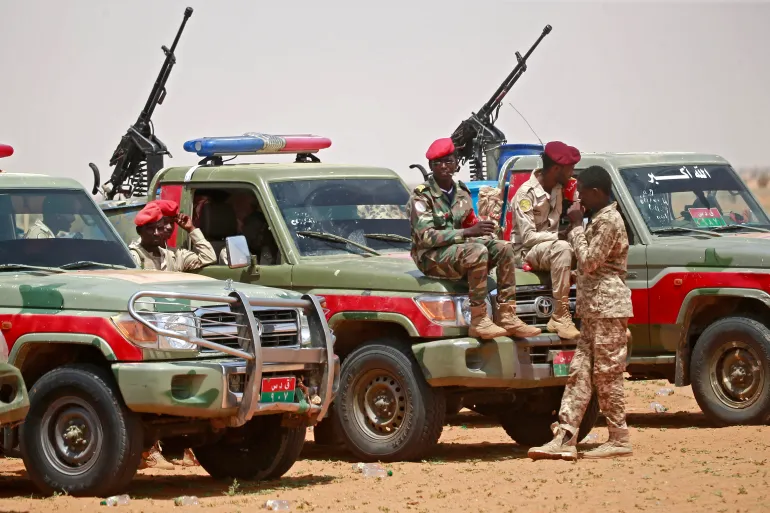
General al-Burhan’s army (SAF) soldiers entrenched in el‑Fashir say starvation—‑not Rapid Support Forces (RSF) bullets—‑is now the single greatest threat to the SAF’s hold on North Darfur.
In interviews with the media, rank‑and‑file troops from four infantry divisions accuse senior officers of siphoning off cash earmarked for rations, plunging frontline units into such acute hunger that:
- Hundreds have deserted their posts since May; many slipped into RSF‑controlled territory or melted back to their villages.
- Remaining soldiers admit looting abandoned civilian homes simply to eat.
- At least three SAF fighters defected to the RSF last week alone, citing “better odds of survival.”
Missing millions
Internal sources inside the 6th Infantry Division say Khartoum wired a special food budget in January, but little of it ever translated into actual supplies. Amid growing mutiny talk, division headquarters has convened a secret inquiry and summoned logistics chiefs from the 16th, 20th and 21st divisions—units that retreated to el‑Fashir after losing Nyala, Zalingei, El Geneina and Ed Daein to the RSF last year.
“We’re dying slower from hunger than we would from enemy fire,” said a sergeant from the 16th Division, blaming his commanders for “selling soldiers to starvation.”
Soaring prices, collapsing morale
- El‑Fashir’s food prices have tripled since April, while fuel shortages choke supply routes.
- Current SAF pay packets barely cover a week’s staples, soldiers say, forcing families to rely on hand‑outs.
- Weakened by malnutrition, some fighters can no longer carry full combat loads, a medic confirmed.
Command response
A field officer in the 6th Division—speaking on condition of anonymity—conceded receipt of “disturbing reports” about troop welfare but insisted funds were disbursed “per standing procedure.” He would not explain why rations still fail to reach the front.
Broader fallout
Analysts warn that collapsing morale in al‑Fashir could accelerate SAF defections and hand the RSF a strategic opening in North Darfur. The United Nations already projects 18 million Sudanese facing acute hunger this year; starvation inside the SAF itself would mark a grim new phase of the conflict.
For embattled SAF soldiers, the question is no longer how long they can fight—but how long they can hold out against an enemy within their own supply chain.




